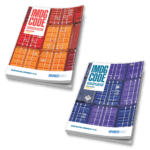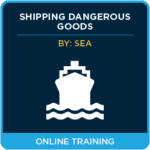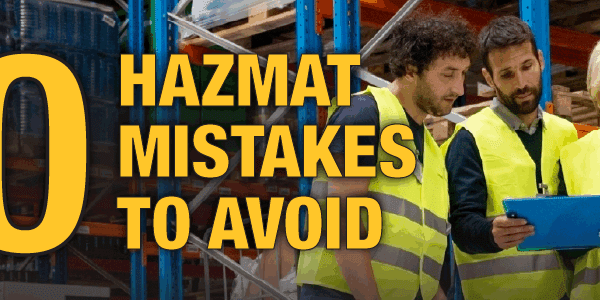
Covid-19 has led to many of us having to restructure our plans for 2021. One of the groups who have been affected is the International Maritime Organization (IMO), which is responsible for publishing the International Maritime Dangerous Goods Code (IMDG) for shipping dangerous goods by ocean. Revisions to the IMDG Code normally come out in the last couple of months before the end of years ending in even numbers (such as 2020) and are intended to be used starting January 1 of the following year (in this case, 2021). But that wasn’t possible this year. How will international marine shipments be affected?
Well, fortunately, the IMDG Code comes with a built-in cushion that helps. Although the upcoming edition, officially identified as 40-20 (since it was the 40th revision and was to be published in 2020), could be used on January 1 of 2021, the previous edition, 39-18, may be used until the end of 2021. The 40-20 edition doesn’t become mandatory until January 1, 2022. This overlap was originally built into the system because shipments at sea cannot be easily changed over on a single date. Still, it certainly became handy when the new edition was delayed.
However, that doesn’t solve all the problems. As we’ve seen, it’s normally an option to start using the new edition on January 1, with a year for not just shippers but carriers, ports, and enforcement staff to learn the new system. This transition period has been shortened due to the pandemic. Therefore, IMO has announced that, instead of a mandatory use date of January 1, 2022, the new edition doesn’t become mandatory until June 1, 2022. Note that, assuming the next edition comes out as regularly scheduled in late 2022, this edition will have a rather short lifespan of seven months mandatory usage and one extra year transition period to the 41-22 edition.
The good news is that this edition has fewer “headline changes,” as IMO puts it since the pandemic also reduced the amount of time the IMO could concentrate on it. Most changes are the necessary harmonization with the UN Recommendations for the Transport of Dangerous Goods 21st revision. They include:
- A new type of radioactive, a Surface Contaminated Object level III (SCO-III)
- Four new UN numbers, dealing with electronically programmable detonators and medical waste in Category A (an obvious necessity due to COVID-19
- Clarification of technical names required by Special Provision 274
- Changes to stowage, handling, and segregation codes
ICC now has the IMDG Code version 40-20 for pre-order. As always, you can purchase it in hard copy form, but it will also be available as an electronic version.
Do you have any questions regarding how the IMDG Code should be implemented? Contact ICC Compliance Center at 888-442-9628 (U.S.) or 888-977-4834 (Canada), and ask for one of our Regulatory Experts. We can help you determine what changes you need to make.
Sources:
The International Maritime Organization; UN Recommendations for the Transport of Dangerous Goods, 21st edition
UNECE; UN Recommendations on the Transport of Dangerous Goods – Model Regulations, Twenty-first revised edition
We have all the products, services and training you need to ensure your staff is properly trained and informed.
 IMDG Publications |
 Shipping Dangerous Goods by Sea Training Courses |






 ICC USA
ICC USA ICC Canada
ICC Canada